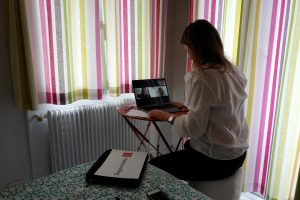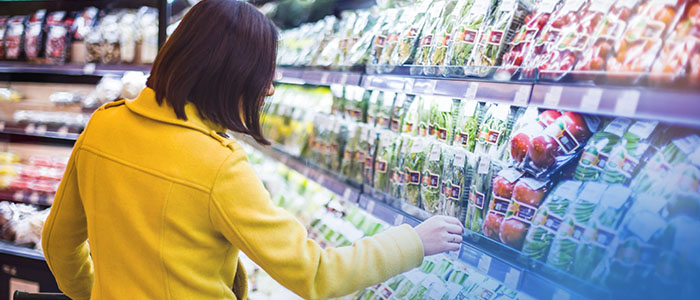São Paulo – More efficient, sustainable, practical and natural. That’s probably how products will look like after the global pandemic caused by COVID-19. But these alone won’t be enough to ensure the longevity of companies or their sales success, whether products are sold on the supermarket shelf or online. The pandemic will create new habits and trends.
According to economist and professor at the Superior School of Advertising and Marketing (ESPM) Cristina Helena Pinto de Mello, the consumer trends resulting from the pandemic will be divided into income and age group. For the low-income consumers, few changes in consumer habits are expected as they are already used to money shortages. They are expected to search for cheap and high-quality products.

As for high-income consumers, they will search for more value-added products from small, local producers that contribute to the global environment. “What is expected to happen here (in Brazil), as it can already be seen in other countries, is an initial consumption boom when people leave their homes, but this won’t last, as it shows less a desire to consume than to be at somewhere else,” Mello says.
A point she makes about middle and upper classes is that they don’t have their housekeepers in their homes now. This leads them to have habits that they didn’t have before. Therefore, you can expect a demand for more user-friendly products and light, practical, recyclable packages. She also says that young people are expected to meet other people when the quarantine ends, while the elders will be more cautious about leaving their homes.
Mello points out, too, that peer-to-peer ridesharing apps are expected to see a drop in demand due to the proximity between the driver and the client. Therefore, those that had sold their cars and used the money to use transportation apps may go back to having a car as a refugee for safety. At the same time, however, the automobile industry will face the challenge to deliver the car the consumer desires in urban centers that are already congested and with high tax and maintenance costs.

Retail Marketing post-graduate coordinator at SENAC University Center, professor Evange Elias Assis says that some trends that were already seen before will keep influencing the consumer’s decision, such as a search for quality of life and more environmental awareness. “Each sector must understand what their public expects and offer products and services that fit the demand and relate to the consumer. This can mean rethinking package’s size and material, ingredients, components, sale and distribution channels, how to serve your client, or even how to relate to stakeholders, and many other possible changes,” Assis says.
As for ecommerce, it will have a larger share in the household consumption. Assis mentions a survey by US consulting firm McKinsey & Company that shows that 40% of the Brazilians surveyed are buying more online during the pandemic and that approximately 40% of them will keep up this habit after the crisis. Online sales were already on the rise before COVID-19, and they are expected to consolidate. But even within this new reality, ecommerce may face some challenges in Brazil. “Brazilians like to see and touch the product before they buy it. They might even buy it online, but only after they’ve seen it physically,” Mello says.

In this new post-pandemic reality, the restaurants are expected to place greater focus on takeout and delivery, and remote work is expected to become more common for companies that have employees working in their offices. Mello believes that this will happen because the physical cost to maintain a property is high, so this cost could be cut.
“Remote work will continue – at least for some days of the week – because we won’t see an intensive return (to workplaces), so it is not wise to dismantle this structure. The space will be an unnecessary cost. Thus, products that facilitate remote work are expected to remain as an option after the pandemic,” she says. She believes that even developers will change condo projects. A leisure area that used to gather people now could be projected to have individualized spaces.
But both Mello and Assis say that a trait of the new economy is already a fact: a drop in income. “We’ve seen that insecurities regarding the economy, the fear of losing one’s job and adecrease in income greatly impact purchase intentions and priorities. People plan to buy just the necessary. The consumers are more aware, critical and well informed,” Assis says.
* Special report by Marcos Carrieri for ANBA
Translated by Guilherme Miranda




